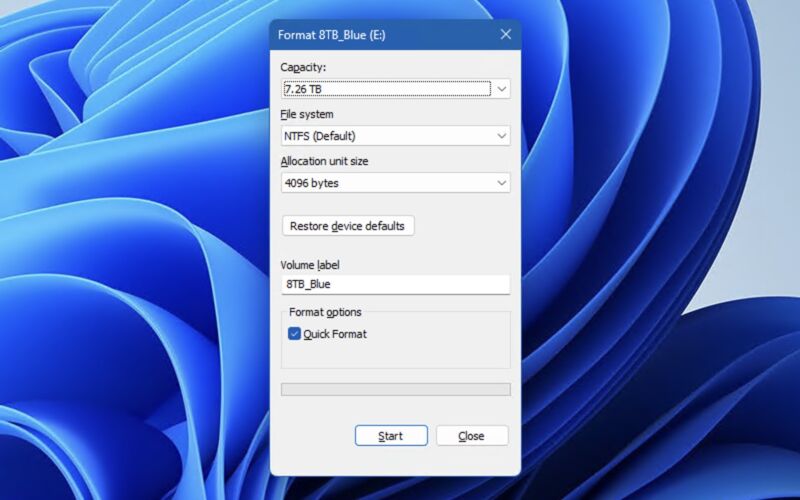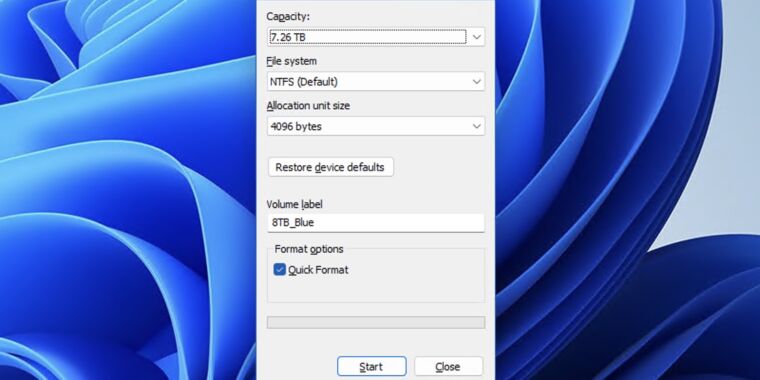
Andrew Cunningham
As we wait for this fall’s Windows 11 24H2 update to be released to the general public, work continues on other new features that could be part of other future Windows updates. A new Canary channel Windows Insider build released yesterday fixes a decades-old and arbitrary limitation that restricted new FAT32 partitions to 32GB in size, even though the filesystem itself has a maximum supported size of 2TB (and Windows can read and recognize 2TB FAT32 partitions without an issue).
For now, this limit is only being lifted for the command-line formatting tools in Windows. The disk formatting UI, which looks more or less the same now as it did when it was introduced in Windows NT 4.0 almost 30 years ago, still has the arbitrary 32GB capacity restriction.
The 32GB limit can allegedly be pinned on former Microsoft programmer Dave Plummer, who occasionally shares stories about his time working on Windows in the 1990s and early 2000s. Plummer says that he wrote the file format dialog, intending it as a “temporary” solution, and arbitrarily chose 32GB as a size limit for disks, likely because it seemed big enough at the time (Windows NT 4.0 required a whopping 110MB of disk space).
There aren’t a ton of reasons to actually use a FAT32 disk in 2024, and it’s been replaced by other filesystems for just about everything. As a filesystem for your main OS drive, it was replaced by NTFS decades ago; as a widely compatible filesystem for external drives that can be read from and written to by many operating systems, you’d probably want to use exFAT instead. FAT32 still has a 4GB limit on the size of individual files.
But if you’re formatting a disk to use with an old version of Windows, or with some older device that can only work with FAT32 disks, this tweak could make Windows a tiny bit more useful for you.
Listing image by Alpha Six

